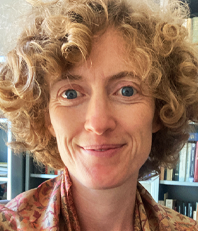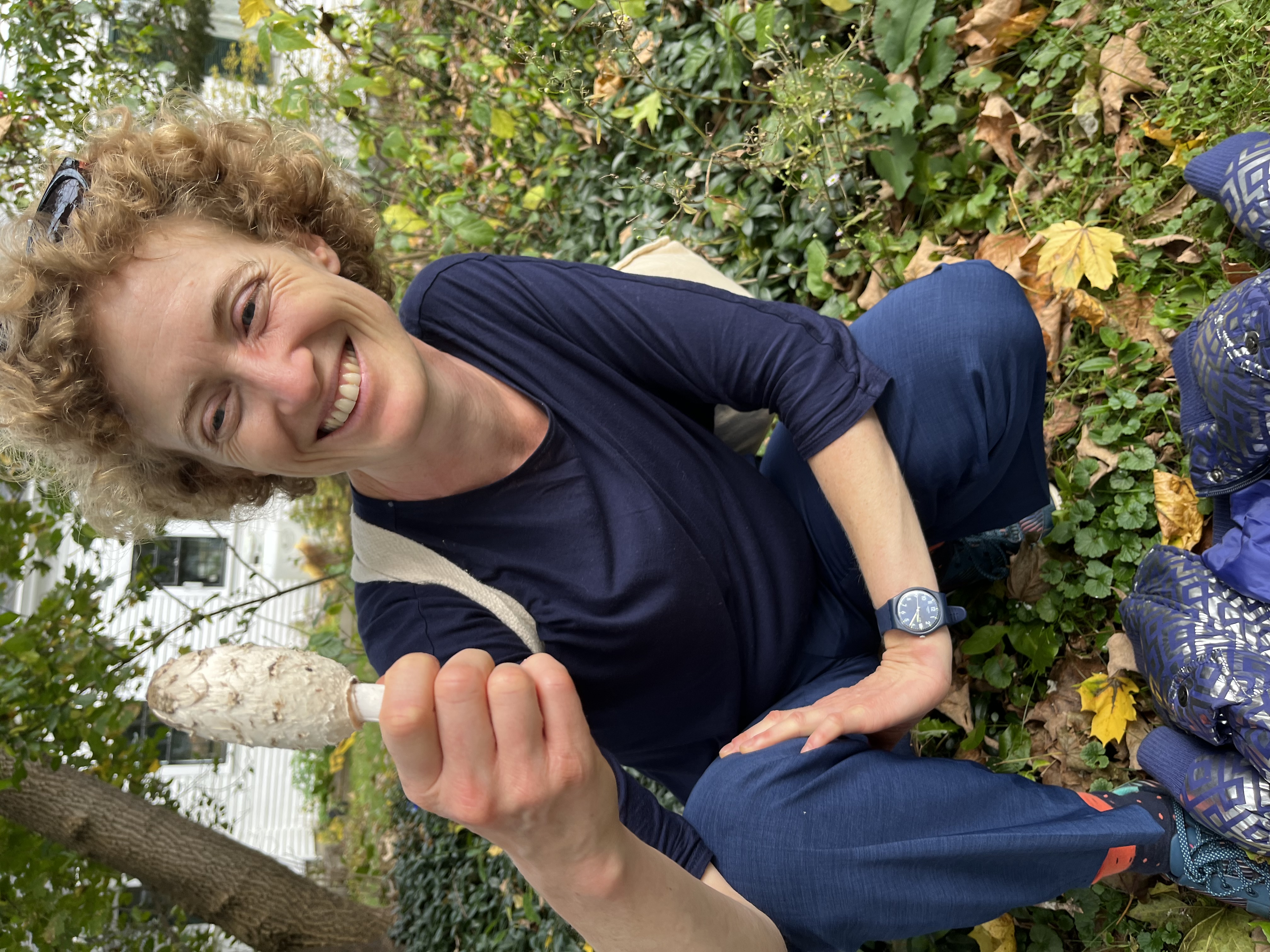
Ainsley Morse
Associate Professor, Department of Literature

- Q&A
- Biography
Q&A
What excites you most about joining our School of Arts and Humanities community?
“I'm especially thrilled to be part of a department that so beautifully meshes literary scholarship and practice. This is something I've been doing on my own for many years, and here it is part of the natural functioning of the department!”
Why did you choose your field? Why should students consider studying the arts and humanities?
“I have always been fascinated by the mystery and significance of words and how people use them—from ‘doing things with words’ to telling stories of all kinds, to ‘making friends and influencing people’ and generally creating the reality we live in. Learning multiple languages and becoming a translator—dealing with more and more words—has only made me more and more captivated by these questions.”
“During the tumultuous and brutal history of the 20th century in eastern Europe, words and stories were often imbued with life-or-death significance (as the Soviet poet Osip Mandelstam said, ‘[Where else is] poetry so common a motive for murder?’). Studying literature (and how literature is written, by which people and in what kind of communities) is one way to think about the different ways people use words to make the world; studying and practicing translation is another one. Along the way, you develop a very close relationship to words, an awareness of your own voice (and its power) and a keen appreciation for really being able to say what you mean.”
What research or project are you working on currently?
“Currently I'm writing about the post-socialist transition for literature in Russia (a project around the poet and classicist Grigori Dashevsky) and former Yugoslavia (the Novi Sad neo-avant-garde and the poet-novelist Vojislav Despotov, whose novel ‘Europe No. 2’ I'm translating), alongside ongoing work on the early Yugoslav avant-garde and children's literature.”
“I'm also editing a bunch of articles about the fascinating unofficial Soviet poet Yan Satunovsky (whose work I'm translating) and editing an anthology of 20th century Ukrainian poetry.”
What’s your favorite class to teach and why?
“I love thinking up new classes and tweaking existing ones—my own perspective on topics like ‘20th Century Russian/East European Literature and Culture’ is always changing, and the course changes accordingly (even more so if it's something like ‘Contemporary Russia’).”
“At UC San Diego I'm very excited I'll get to teach a course on children's literature (Spring 2025!). I've researched Soviet and East European children's literature, especially its interactions with ‘adult’ literature, for years, but this will be my first opportunity to talk about it with students in the classroom. And I love teaching poetry, for all the reasons I mentioned above (words, words and the unexpected delights of syntax!).”
What is something about yourself that is not typically included in your bio?
“I am an enthusiastic mushroom hunter! I look forward to figuring out foraging in San Diego.”

Biography
Ainsley Morse is a scholar of 20th and 21st century literature and culture of the post-war Soviet period, particularly unofficial or “underground” poetry, as well as the avant-garde, children's literature and contemporary poetry. She earned a Ph.D. in Slavic languages and literatures from Harvard University, and most recently served as associate professor of East European, Eurasian and Russian Studies and Comparative Literature at Dartmouth College.
Her first book, “Word Play: Experimental Poetry and Soviet Children's Literature” (Northwestern University Press, 2021), traces the history of a ‘childlike aesthetic’ from early modernist experimentation through Soviet utopian visions and censorship, and into the strange partnership of children's and underground literature.
Morse is also a literary translator, specializing in works from Russia, Ukraine and the languages of former Yugoslavia. Her translated works include “Permanent Evolution,” a collection of theoretical essays by the Formalist critic Yuri Tynianov (ASP; edited and translated with Philip Redko); the Yugoslav surrealist-Marxist “Fine Feats of the Five Cockerels Gang” (with Aleksandar Bošković, Brill 2022); the Odesan poet Maria Galina’s “Communiqués” (with Anna Halberstadt, Cicada Press 2024); and the novels of early Leningrad modernist Konstantin Vaginov (with Geoff Cebula, NYRB Classics, 2025). With Galina Rymbu and Eugene Ostashevsky, she also edited the anthology “F-Letter: New Russian Feminist Poetry” (isolarii, 2020), and she was poetry translations editor for “Ukrainian Soviet Modernism: Texts and Contexts” (ed. Babak, Ilchuk, Ustinov; ASP, 2025).
